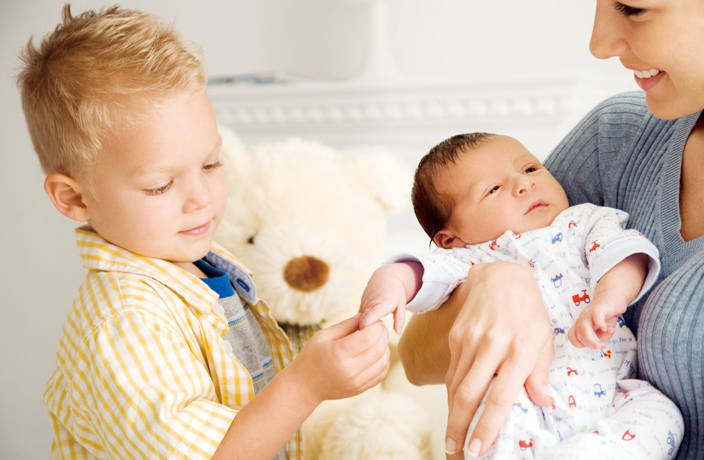Prepping for child number two can be both overwhelming and rewarding at the same time. Even though you have been through pregnancy and childbirth before, the body changes and experiences you will have with your second pregnancy will still be unique and different.
Being pregnant with your second baby is more challenging physically, mentally and emotionally, as you will be taking care of your first child while pregnant and are responsible for the emotional adjustment and acceptance of the older child towards the new addition to the family.
Another important factor to consider is the time interval between your pregnancies. If there is a big gap, consider enrolling in a prenatal class to refresh your memory and update yourself; you will be amazed how much new information you can get, and this could also help you connect with other expecting mothers who you can exchange notes with.
Prenatal care
As each pregnancy is unique and requires the same level of care, you will need to go to your prenatal check-ups with the same frequency as your first pregnancy. But if you had any medical complications during your first pregnancy, like gestational diabetes or pregnancy-induced hypertension, you should be monitored more frequently by your obstetrician.
What to expect on your second pregnancy
Nausea and vomiting (morning sickness). This is common in the first half of pregnancy and can be mild or severe. If you did not experience nausea and vomiting the first time around then you are very lucky, but do not assume that the second time will be the same.
Sleeping and fatigue. In your first pregnancy you could rest at the first sign of fatigue. However, the second time around, caring for the first child may make you extra tired and sleep-deprived.
Lower back pain. This is more common in a second pregnancy. The expanding belly and extra weight you gain can cause back strain, and if your first child is still young, lifting, bending and carrying them can add to the strain and cause more frequent lower back pain.
Earlier perception of quickening or baby’s movement. As you previously experienced how it feels when your baby moved, you can now recognize the baby movement earlier.
Childbirth and labor
Labor and childbirth are quicker the second time because the cervix and vaginal tissues yield more readily to the pressure of the baby's head, decreasing the amount of time it takes to push the baby out. If you delivered your first baby through caesarian section, you can actually plan and choose your date of delivery with your obstetrician.
After delivery, most second-time mothers are much more sensitive to the postpartum pains caused by the contractions of the uterus as it shrinks back to its pre-pregnancy size and return to its normal location. These are usually mild for first-time mothers because they have better uterine muscle tone so the uterus contracts and stays contracted, compared to second-time mothers in whom the uterus intermittently relaxes and contracts again.
Breastfeeding can also make postpartum pains more intense because the baby’s sucking triggers the release of hormone oxytocin, which causes the uterus to contract.
It is also common for you to feel some degree of depression or postpartum blues a few days after your delivery. This is often caused by several factors that could include: emotional exhaustion following the excitement and fear you experienced during pregnancy and delivery; the discomfort you feel after giving birth; the fatigue from the lack of sleep; your anxiety over your ability to provide appropriate and adequate infant care to the new baby and to the older sibling; body image concerns.
Spousal and familial support is very crucial during this period, and organizing help or a close family member to aid you with both the new baby and the older child before your due date can help you cope with the new challenges and responsibilities you will face.
How to prepare your first child
Emotionally preparing and helping your first child accept and adjust to his or her new role as big brother or sister is a big responsibility, but both parents can help with the transition by creating a sense of excitement and anticipation for the arrival of the new sibling and assuring them that although the new baby will take a lot of time and attention, there will still be plenty of time and love for her or him.
Sit down and talk to them about the advantages of having a sibling to play with and how lucky the new baby will be to have them as a big brother or sister. You can also bring them with you during your regular prenatal consultations so they can hear the new baby’s heartbeat and watch the baby during ultrasound examinations.
After delivery, you can consider letting your first child visit the hospital as soon as possible to bond with the new baby. At home, give them the opportunity to help you take care of the baby. For example, they can assist you during the changing of the baby’s diaper or help push the baby stroller.
The important thing is that your first child needs to be involved so they will feel the baby is an extension of the family and not a replacement.
Allyn Zamora is an obstetrician and gynecologist at United Family Guangzhou Clinic. See United Family Guangzhou Clinic listing here.


















